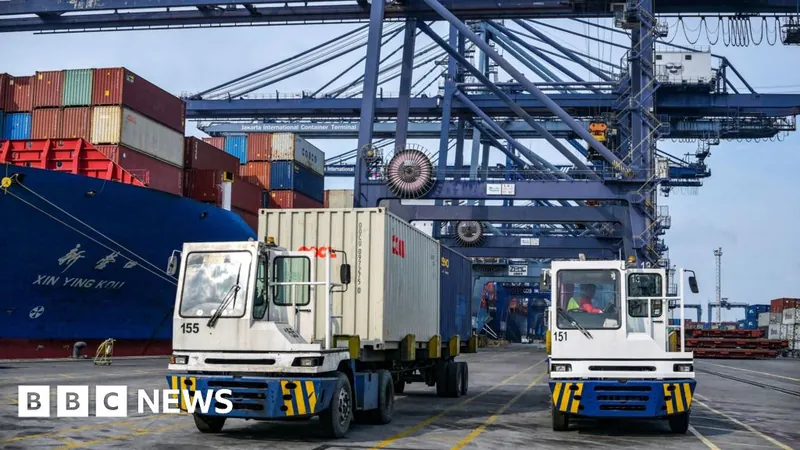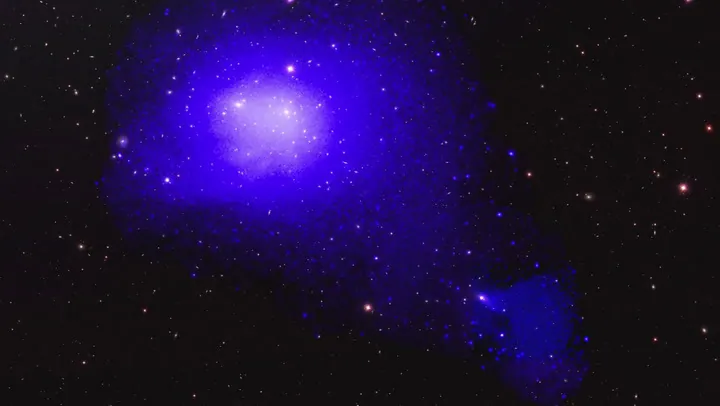
Unlocking Nature's Secrets: Microbes Pave the Way for Cost-Effective Carbon Capture
2025-06-26
Author: Jacques
Innovative Research Paves Future for Carbon Capture
Research conducted by experts from Concordia University and l’Université du Québec en Abitibi-Témiscamingue (UQAT) reveals a groundbreaking solution to one of our planet's most urgent challenges: excessive carbon dioxide emissions in the atmosphere.
The focus of their study centers around a natural phenomenon known as mineral carbonation, a process that transforms carbon dioxide (CO₂) into solid crystals. What sets this research apart is the inventive use of microorganisms—including bacteria and algae—to accelerate this critical process in a cost-effective and environmentally sustainable manner.
Microbes: The Unsung Heroes of Carbon Capture
Catherine Mulligan, a co-author and professor in the Department of Building, Civil and Environmental Engineering, emphasizes the remarkable potential of these tiny organisms. ‘We’re already familiar with microbes that can repair concrete or purify wastewater. Now, we’re unveiling their capability to capture atmospheric carbon for long-term storage,’ she explains.
Two Promising Approaches for Carbon Capture
The researchers have identified two significant methods for utilizing microbes in carbon capture. The first involves microbes passively promoting carbonate formation, while the second entails actively converting CO₂ into solid minerals through enzymatic reactions. These techniques could be effectively applied in a variety of locations, such as:
- **Abandoned Mines or Quarries**: Here, bacteria could be introduced to leftover mineral deposits, facilitating the transformation of CO₂ into carbonate crystals.
- **Soils and Cement**: By treating these materials, we could not only remove harmful inorganic carbon but also bolster their strength and diminish erosion.
- **Coastal Wetlands and Salt Lakes**: Certain bacteria and algae in these ecosystems naturally generate minerals that trap carbon.
Natural Solutions Over Industrial Complexity
In contrast to traditional industrial carbon capture technologies, which depend on complex machinery and extensive energy consumption, microbial approaches offer simplicity and adaptability. These solutions could provide additional benefits, including cleaner water and enriched soils.
Mulligan asserts, ‘Nature has already equipped us with the necessary tools. Now, it’s about cleverly utilizing them to address our carbon problem.’
Call to Action: Testing and Collaboration Needed
The research team is advocating for increased field testing and deeper partnerships with industry stakeholders to transition this promising technology from academic settings to real-world applications.
Samantha M. Wilcox, a Ph.D. candidate at Concordia University, spearheaded the study, while Carmen Mihaela Neculita at UQAT contributed as a co-supervisor along with Mulligan.









 Brasil (PT)
Brasil (PT)
 Canada (EN)
Canada (EN)
 Chile (ES)
Chile (ES)
 Česko (CS)
Česko (CS)
 대한민국 (KO)
대한민국 (KO)
 España (ES)
España (ES)
 France (FR)
France (FR)
 Hong Kong (EN)
Hong Kong (EN)
 Italia (IT)
Italia (IT)
 日本 (JA)
日本 (JA)
 Magyarország (HU)
Magyarország (HU)
 Norge (NO)
Norge (NO)
 Polska (PL)
Polska (PL)
 Schweiz (DE)
Schweiz (DE)
 Singapore (EN)
Singapore (EN)
 Sverige (SV)
Sverige (SV)
 Suomi (FI)
Suomi (FI)
 Türkiye (TR)
Türkiye (TR)
 الإمارات العربية المتحدة (AR)
الإمارات العربية المتحدة (AR)